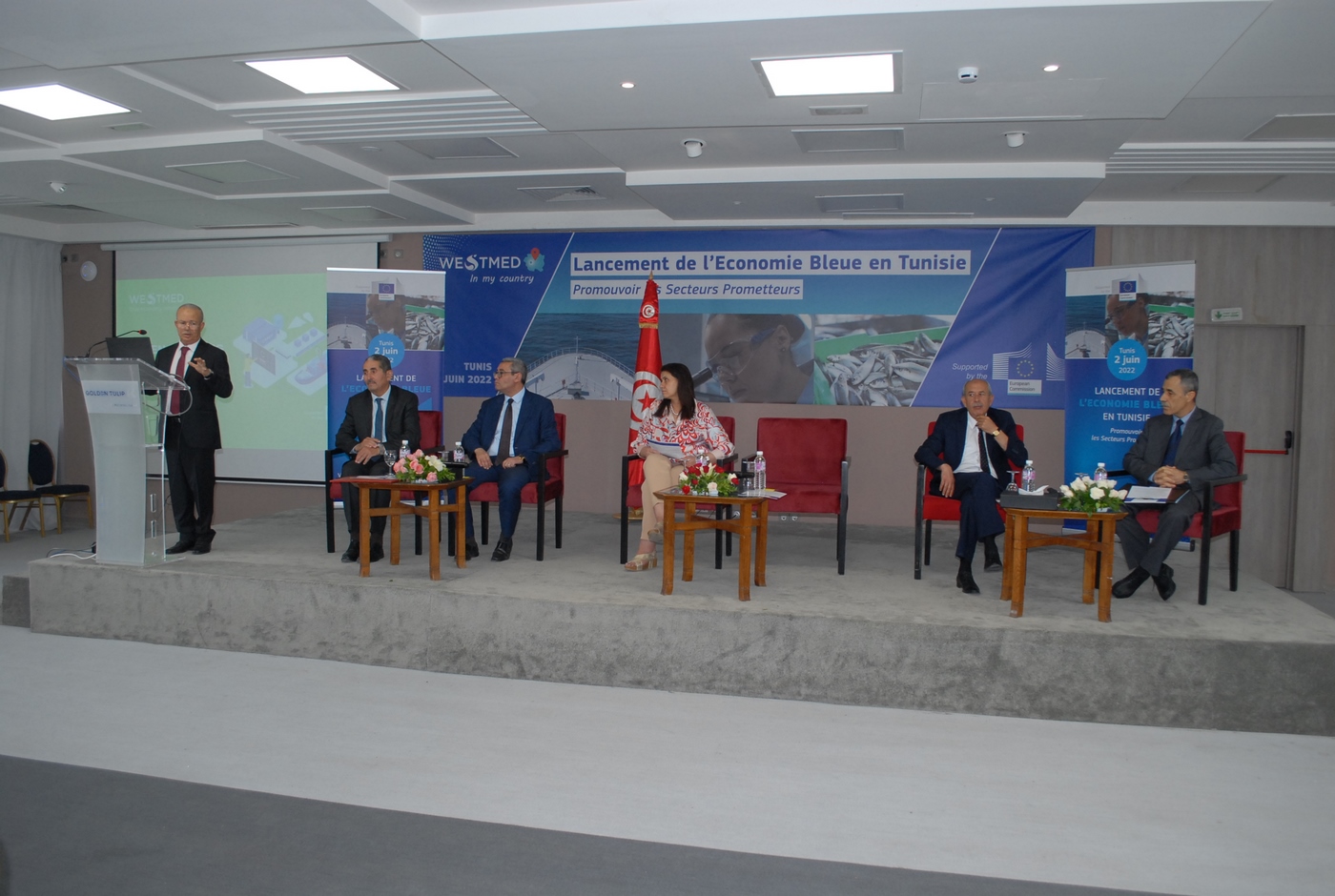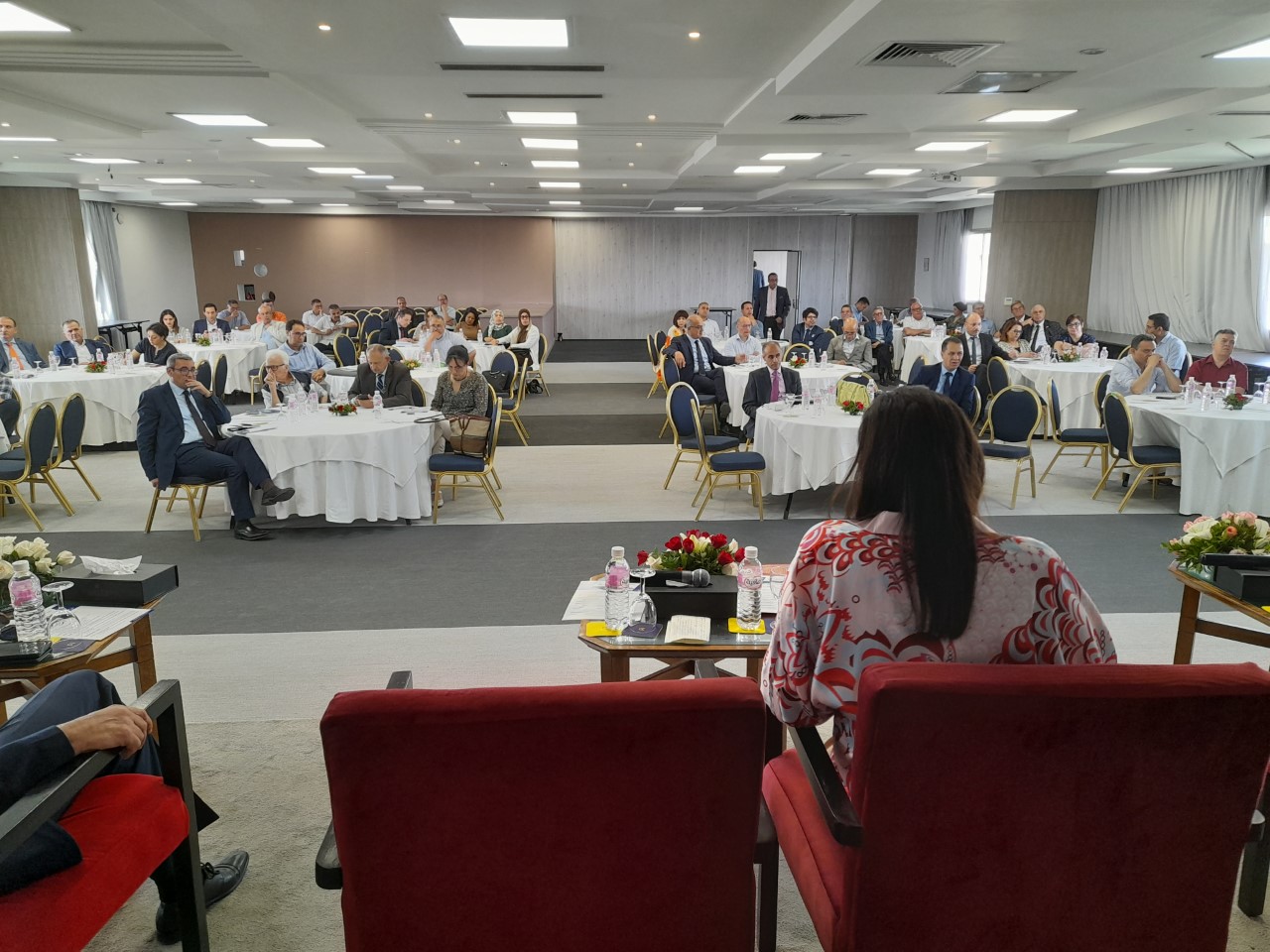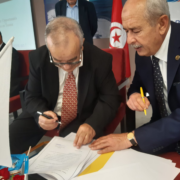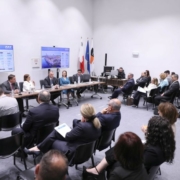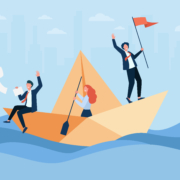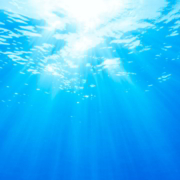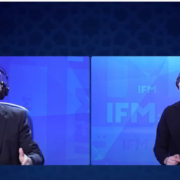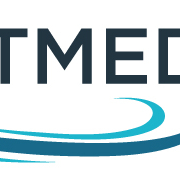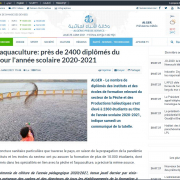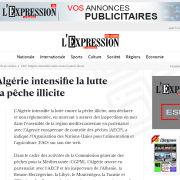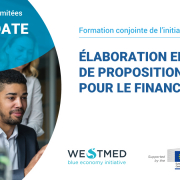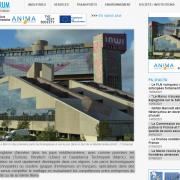Lancement de l’Economie Bleue en Tunisie avec la signature d’un accord de partenariat entre le Cluster Maritime Tunisien et l’Institut National des Sciences et Technologies de la Mer
Le Hub National Tunisie du projet WestMED a organisé, le 2 juin 2022 à Tunis, l’évènement national sur « L’économie bleue en Tunisie ». Plus de 80 personnes ont assisté à cet événement dont Mme Asma shiri Labidi, la ministre chargée du Secrétariat Général de la Mer, des représentants de l’administration, des entreprises aussi bien publiques que privées, des associations et des universitaires et chercheurs.
A l’ouverture des travaux, et après la présentation du projet WestMed par le Hub National Tunisie, la ministre a affirmé une volonté politique nationale pour développer l’économie bleue en Tunisie et que son département a soumis au gouvernement un document retraçant la stratégie à entreprendre et un plan d’actions pour les trois prochaines années 2023-2025.
Elle a fait un aperçu détaillé des différentes activités de l’économie bleue en mettant l’accent sur les objectifs et les priorités pour chaque secteur. La ministre a insisté sur la coordination entre les différents départements au niveau national mais aussi sur la coopération à l’échelle internationale et notamment méditerranéenne. Prenant la parole le Coordinateur National du projet a souligné l’importance du projet Westmed et de son approche de réunir les différents acteurs de l’économie bleue autour de différents thèmes afin de débattre des différentes difficultés et d’augmenter la coordination entre eux. Il a insisté sur l’importance de la coopération internationale notamment avec l’Union Européenne dans ce domaine.
Le Hub National a rappelé que la première partie de l’événement est consacrée au rôle des groupes techniques Westmed dans la création d’une dynamique de réflexion des secteurs prometteurs. Il a fait une présentation sur la création de ces groupes, leurs objectifs et priorités et la nécessité de renforcer la coopération entre les deux rives de la méditerranée dans ces domaines. Les représentants tunisiens dans ces groupes ont fait des communications détaillées sur le transport propre, l’aquaculture durable, les clusters et le tourisme alternatif. Le débat était riche et tournait autour du choix des différentes énergies de substitution au fioul lourd dans le transport propre et des coûts d’adaptation de la flotte et des infrastructures.
La nécessité de garantir la croissance équilibrée d’une aquaculture durable étant donné l’inexistence d’un MSP et de l’impact des déchets des poissons sur l’environnement. Les opérateurs du tourisme et notamment de la plaisance ont insisté sur la baisse de l’activité suite au Covid19 et le retard dans la reprise de cette activité et ont insisté sur la nécessité de l’entretien de l’infrastructure des ports de plaisance.
La deuxième partie de l’événement était consacrée à l’économie bleue solidaire, à la recherche et innovation en biotechnologie bleue comme source d’opportunité pour les entreprises, aux défis et perspectives de l’industrialisation de la pêche et de l’aquaculture et aux méthodes et outils pour un aménagement durable du littoral. Le débat était animé et concernait notamment la nécessité des réformes institutionnelles pour faciliter la synergie entre la recherche scientifique et le secteur industriel et résoudre le problème de cloisonnement entre eux et d’ouvrir ces instituts de recherches sur leur environnement et sur les préoccupations des opérateurs et la résolution de leurs problèmes.
Les participants ont insisté sur l’inexistence d’un MSP et d’une GIZC est de nature à créer des conflits entre les opérateurs et à encourager le développement spontané des différentes activités ce qui engendrerait une dégradation du littoral.
L’événement national sur l’économie bleue était l’occasion de la signature d’un accord de partenariat entre le Cluster Maritime Tunisien et l’Institut National des Sciences et Technologies de la Mer.
